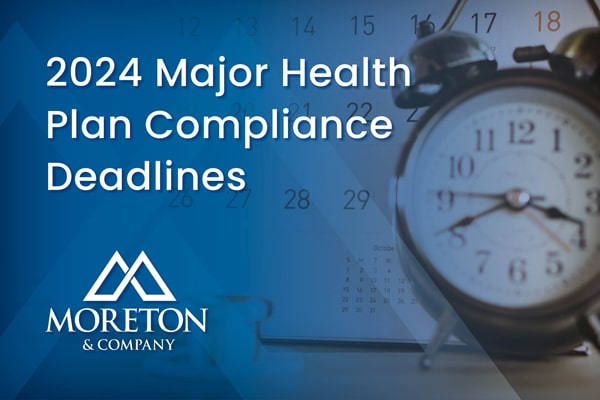
Decaffeinating for Sleep
According to a recent SleepFoundation.org survey, 94% of Americans drink caffeinated beverages, with 64% consuming them daily–and 56% drinking four or more 8-ounce cups in a 24-hour timespan. The vast majority of those are coffee lovers, with the consumption of soda, tea, and energy drinks trailing behind.
Why do people like coffee so much, or caffeine in general? Taste is the first reason, say 70% of survey respondents, coupled with the fact that it helps them wake up and feel more alert. This enjoyment and reliance on caffeine often comes at the detriment of our sleep, yet we consume it in vast amounts. According to Dr. Abhinav Singh, medical director of the Indiana Sleep Center in Greenwood, Indiana, a SleepFoundation.org medical reviewer says the answer is twofold:
“If you go to Europe or Asia, they have a mixed bag of teas and coffees, but I feel the U.S. particularly really likes their coffee,” he says. “The U.S. is the marketing champion of the world, but we are a chronically sleep-deprived society. People are tired of being tired, and caffeine is a legal stimulant that provides that little jolt of energy.”
The time of day we drink caffeine plays a critical role in the quantity and quality of our sleep. Think of it in terms of half-life, the time required for your body to clear just half of the total caffeine from your system. This can range from 3 to 7 hours, depending on your body’s metabolism. According to Dr. Singh, the average half-life of caffeine is closer to 4 to 6 hours.
Of those surveyed, 68% who don’t drink caffeine think caffeine affects their sleep. By comparison, only 40% of caffeinated beverage drinkers believe so. But the survey results speak for themselves: Sleep issues across the board affect more caffeine drinkers than non-caffeine drinkers. For instance, 35% of caffeine drinkers experience daytime sleepiness, and 31% report having insomnia (versus 27% and 22% in non-drinkers).
You can quench that caffeine craving, have your latte, matcha, or Diet Coke, and still get good sleep. Just choose your caffeine wisely–different drinks contain varying amounts–and know how much your body is affected by caffeine. For instance, coffee tends to have more caffeine per ounce than soda or tea. Of those who stick to tea, 75% get the recommended seven or more hours of sleep per night, while 58% of coffee drinkers do.
“If you find yourself struggling to fall and stay asleep when tired, look at your entire caffeine intake and see how much is getting into your system and start to reduce or eliminate as much as possible,” Dr. Singh advises. “There are hidden sources of caffeine that are present everywhere, including chocolate, workout drinks, body washes, and face creams. Caffeine can be used as a friend in the right quantity and timing.”
Smithers Peckham, T. (2023, September 26). 94% of US drink caffeinated beverages. Sleep Foundation. https://www.sleepfoundation.org/sleep-news/94-percent-of-us-drink-caffeinated-beverage
Screenless Sleep
The personal electronic devices that help make your daily life easier may be making your nightly rest harder. If you’re having a hard time falling and staying asleep, devices like your cellphone, TV and tablet may be to blame. Researchers at Harvard identified three main ways that using your phone, or any electronic device, before going to bed can derail your sleep schedule:
- Melatonin Suppression: Those who used electronic devices before going to sleep had lower levels of the sleep-regulating hormone, melatonin. That’s because the blue light emitted by electronic devices suppresses the production of melatonin, which controls your circadian rhythm–your body’s natural sleep and wake clock.
- Later Sleep Onset: The amount of time it takes to fall asleep was longer for those who used electronic devices than for those who didn’t. If you’re mindlessly scrolling through social media sites before bed instead of reading a book or meditating, it’s likely that you’ll have a harder time falling asleep.
- Reduced REM Sleep: Research shows that electronic device usage before bed results in a reduced amount of rapid eye movement (REM) sleep cycles. REM sleep is a vital component of our sleep patterns.
What Can You Do?
To prevent the harmful effects of electronic devices, there are a few steps that you can take, including:
- Check your device’s settings for a “nighttime” mode, which adjusts the screen lighting to promote sleep.
- Refrain from using your phone for at least an hour before bed.
- Set your device’s sound settings to “silent” so you won’t be woken by texts or emails while you’re trying to sleep.
- Try a calming, low-tech activity like reading a book or meditating to relax before bed instead of using your phone or watching TV.
For more information on sleep-promoting activities, contact your doctor.
2019. Sleep and Electric Devices. Zywave.
– Mental Health Moment –
Lowering Your Risk of Depression
A recent international study published in the Nature Mental Health journal found that certain lifestyle factors can reduce the risk of depression by 57%. This study, which examined data from nearly 290,000 people over a nine-year period, found that there are seven lifestyle factors associated with a lower risk of depression, and sleep was at the top of the list.
The study found that getting between seven and nine hours of sleep each night could reduce the risk of depression, including single depressive episodes and treatment-resistant depression, by 22%. Furthermore, the study revealed that participants with the lowest genetic risk for depression were 25% less likely to develop depression than those with the highest genetic risk, representing a much smaller impact than lifestyle factors.
The seven lifestyle factors that were linked to lower rates of depression included the following:
- Limiting alcohol consumption
- Keeping a healthy diet
- Engaging in regular physical activity
- Maintaining a healthy sleep schedule
- Avoiding smoking
- Minimizing sedentary behavior
- Having frequent social connections
You can reduce your risk of depression and boost your mental and physical health by making small changes to your lifestyle, whether that’s eating a diet that’s high in lean proteins and vegetables, reducing your alcohol intake, or getting 60 minutes of physical activity each day. Encourage healthy sleeping habits by going to bed and waking up at the same time every day, avoiding caffeine and nicotine before bed, putting your technology away prior to bedtime and ensuring you have a dark, quiet place to rest.


